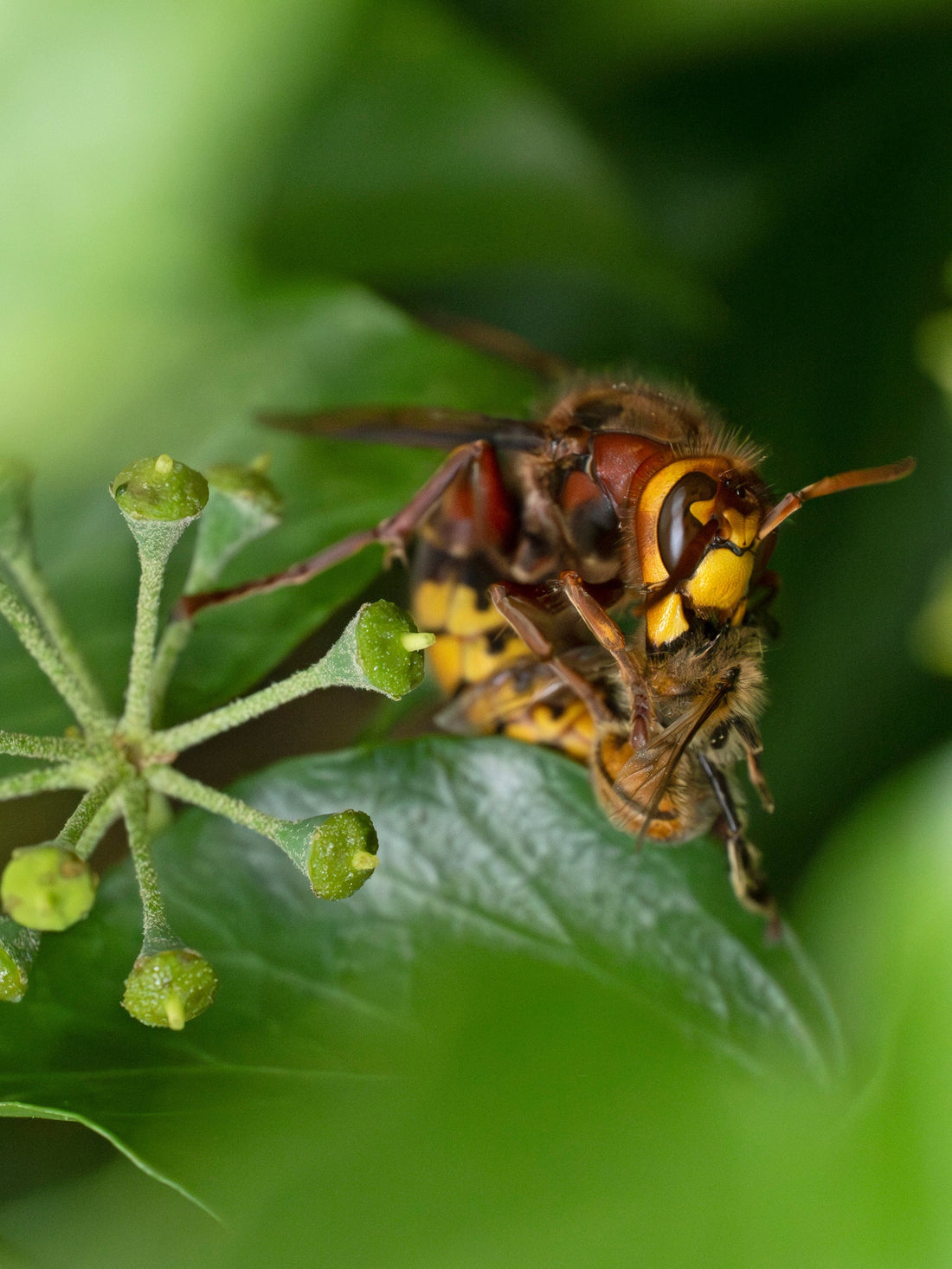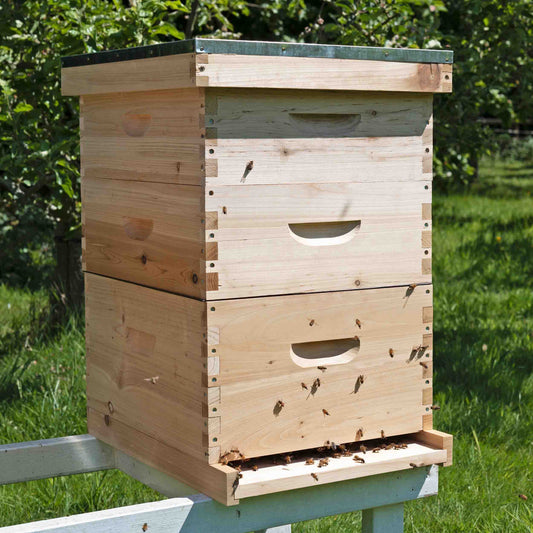
Hornet's on the hunt
Well, I for one am glad to see the end of September. For the first time ever, I had serious problems with wasps. The biggest surprise came with European hornets. In previous years I had rarely seen hornets, but now they are a big presence: wasps robbing honey, hornets taking the bees.
Another beekeeper commented that the hornet didn’t get that fat feeding on midges and mosquitoes! I moved the beehive a metre to one side and put a trap on the original hive stand. Lots of wasps and hornets were caught, and one Asian hornet. Good old Defra came out, muttered about the European hornets in the trap, didn’t mind the wasps, took the ‘AH’ away and started the tracking procedure. The nest was eventually traced to a site 1.8 kilometres away.
We are officially heading towards winter now, and there are lots of jobs to do. I have one apiary which is close to a main road: invisible in the summer, but with the leaves off the trees the hives become very obvious. Sadly, hive theft is a real concern. To the light-fingered beekeeper, it is akin to seeing a pile of pound notes left in the corner of a field. My solution is to screw the floorboards of the hives down to the hive stands and not strap up the hives. This way, if someone is going to try to take them, they will need to take the hive stand as well, making it a difficult load to move.
All my hives have been fed now: six litres of thin syrup and two litres of thick. I leave supers on my hives. It’s not really necessary, but I have no complaints from the bees, and it means I know they have room for stores and brood. Queen excluders come out, of course. Does anyone know of a simple way to clean the plastic queen excluders not involving a blow lamp or hot air gun?
I hate cleaning the feeders. What is it with bees that they must put propolis over everything? Last year I put them all through the dishwasher. That did an amazing job, except it left the dishwasher contaminated with the bloody propolis. For the next two weeks my wife was complaining about lots of brown smudges on the crockery. I said that probably she hadn’t been caring enough for the dishwasher and perhaps should buy a dishwasher cleaner and run a hot cycle. That worked.
The workshop is full of bits of hives that need repair. I mark faulty equipment with a red marker pen over the year so that I can gather them in for repair in the winter. Hives in exposed apiaries are strapped up against the gales, ready for winter’s onslaught.
All that is left to do now is to sell the honey. I hate selling honey, but a bit of folding stuff does compensate for the egregious assault on my wallet over the season. I am fortunate in that I live surrounded by farmers’ orchards, through which I walk my dogs, and am able to enjoy cherries in July, plums in August, apples in September, then a few walnuts, and lastly sloes for a great winter drink.
I appreciate this bounty and reciprocate with a tray of honey to the farms. We are never short of fruit, and if a swarm arrives in one of the fields, I am the first to hear of it. Some honey sales must happen. I try to keep a few shops supplied all year round and have them trained to give me a ring when they are down to their last three jars, incentivised by the occasional free jar of honey.
I don’t do a lot of doorstep sales, but people who do come are trained to buy twelve jars at a time and to bring the jars back for recycling. This works well, as with the larder well stocked, they eat more honey.


